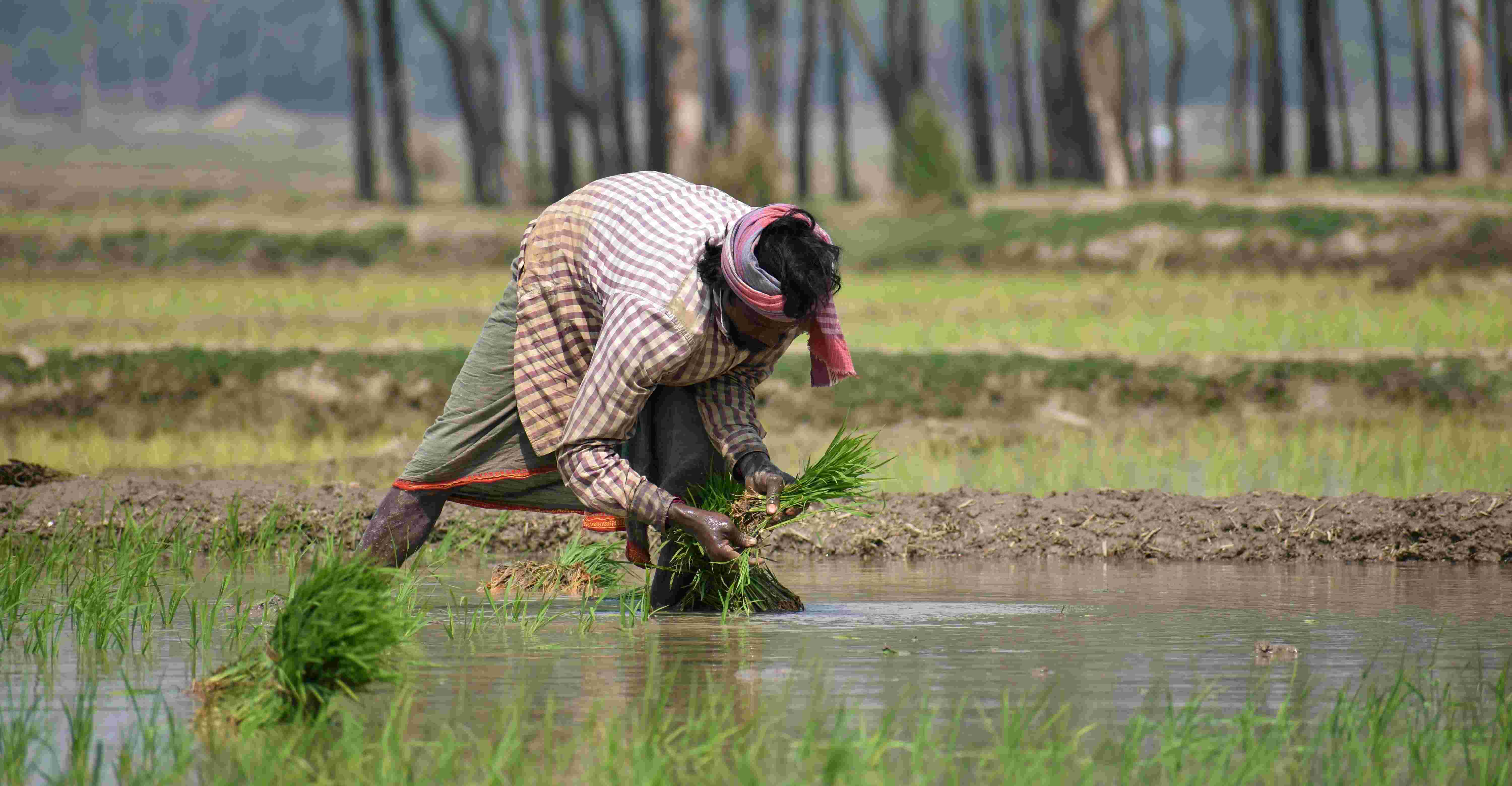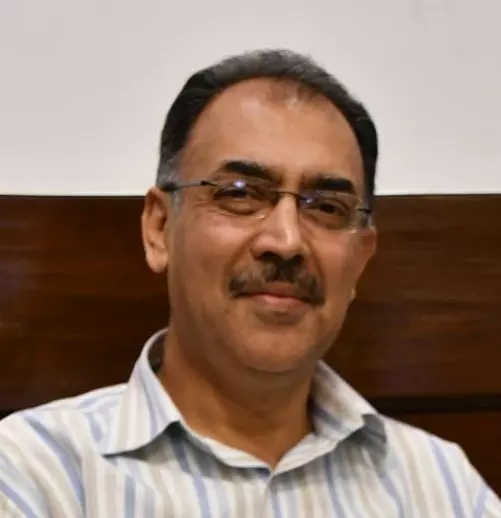Pathway to sustainability
Though agriculture is a key contributor to climate change, it can also be leveraged as a part of solution if resilient agricultural practices are adopted

In 2015, the United Nations' 17 Sustainable Development Goals (SDGs) were unanimously backed and supported by governments all over the world. The 'End of Hunger' SDG focused on promoting sustainable agriculture to enhance the productivity as well as incomes of small and marginal farmers as producers of food.
In this context, one of the biggest challenges to agricultural growth is GreenHouse Gas (GHG)-induced climate change variabilities —leading to increase in intensity of water scarcity, drought, heavy rainfall, flooding and high maximum temperatures. At the 26th United Nations Climate Change Conference, India committed itself to achieving the country's net-zero carbon emission target by 2070.
Agriculture accounts for 14 per cent of the GHG emissions in the country. Therefore, amongst myriad adaptation measures, the Government of India is implementing the National Mission of Sustainable Agriculture (NMSA). The objective of this mission is to extensively leverage adoption of resilient agricultural practices in cooperation with the Indian Council of Agricultural Research (ICAR)-led Krishi Vigyan Kendras (KVKs), state governments and other public-private stakeholders. The key areas of interventions include building fertility of soil, promoting water saving technologies and spreading awareness through information, education & communication (IEC) activities.
Experts opine that while agriculture in India is a key cause of climate change, it has the potential to be an integral part of the solution as well. One key concern is the loss of carbon carrying capacity in soils — an equilibrium that depends upon the nature of vegetation, precipitation and temperature. Hence, 'soil carbon sequestration' is being promoted to transfer and retain atmospheric carbon dioxide into soil and thereby improve its quality. The Soil Health Card scheme is an important initiative in this regard. There is, in fact, a dire need to increase awareness about the concept of 'carbon farming' that incentivises small and marginal farmers to adopt regenerative agricultural practices.
Entities such as CROPIN, for instance, are assisting such farmers with mobile-based advisories that host updates on sowing, soil health, seed treatment, weather forecasts etc. This is to enable them to make smart responses to changing climates. In fact, 'carbon credits' —particularly Certified Emission Reductions — from climate positive agri-projects, fueled by above initiatives, are increasingly being adopted.
Another key area of concern that experts highlight is that two thirds of the 80 per cent of water used in agriculture is allocated to paddy cultivation in the conventional puddled planting method. It is a significant contributor to 'methane emissions' due to continuous irrigation and flooding it requires. Therefore, Direct Seeded Rice is a technology that is being promoted by ICAR to improve irrigation efficiency, energy saving for ground water withdrawal and thereby reducing greenhouse gas emissions. Additionally, a diversified cropping pattern, with inclusion of pulses, maize etc. in the rice-based cropping system is being advocated.
Furthermore, in partnership with ICAR, digital platforms such as nurture.farm are supplementing the efforts of governments to convince farmers to mulch paddy straw 'in-situ' rather than burn it, and thus reduce emissions.
A third area of concern raised by experts is the overuse of nitrogenous fertilisers on farms. In fact, nitrous oxide emissions are a result of nitrogenous fertilisers' use on agricultural soil. An entity named PRADHAN works in the poorest and tribal-dominated district of Balaghat in Madhya Pradesh. It has enabled 3,000 women farmers to transition from chemical-intensive cropping practices to organic farming of rice and vegetables. The handholding approach is to blend scientific practices with indigenous communities' knowledge to strengthen agro-ecology.
In the above context, the recently launched 'One District One Product' (ODOP) initiative by the Government of India, listing agro-climatically suitable crops for which niche demand can be further invigorated in districts, is a step in the right direction. This can be a focal point for state governments to strengthen their organic production plans with a requisite package of practices to reduce use of synthetic fertilisers, and hence conserve precious soil resources.
The government continues to make untiring efforts to provide the above-mentioned ecosystem to drive climate change adaptation strategies in agriculture. What more needs to be done at the last mile to strengthen outreach and awareness amongst small and marginal farmers?
Firstly, there is a need to strengthen the interface mechanism of ICAR institutes, especially over 700 KVKs (since they execute on-farm trials and frontline demonstrations in farmers' fields) and the district administration. Both together will have to popularise amongst small and marginal farmers regionally differentiated use of a package of technological practices such as laser levelling, zero-tillage etc. The application of such interventions, of course, has to take into account the changing agro-ecological ground realities.
Secondly, the district administration needs to take steps to aggressively increase the capacities of Panchayati Raj Institutions (PRIs) in tandem with Common Service Centers (CSCs) to use remote sensing and geo-referencing to map intercropping needs, identifying potential areas of organic farming, micro-irrigation, fallow lands etc. There is now tremendous penetration of broadband connectivity and mobile usage in villages. Despite this, the physical reach of sufficient numbers of extension officers of agriculture, horticulture, fisheries and animal husbandry departments has to be ensured.
Thirdly, the District Magistrate/Collector/Deputy Commissioner offices will need a robust arm that regularly reviews and facilitates convergence of resources/investments for climate change adaptation strategies. In addition to funds available with ICAR/KVKs, funds of non-governmental, private sector and Corporate Social Responsibility (CSR) entities will have to be dovetailed to foster strategic partnerships. This will also include the innovative initiatives of numerous Farmer Producer Organisations (FPOs) and 'agri-startups' in districts (especially in NITI Aayog-identified aspirational districts) that are using regenerative agricultural practices and promoting 'carbon farming'.
The writer is an Additional Secretary in the Ministry of Agriculture & Farmers Welfare, Government of India. Views expressed are personal



